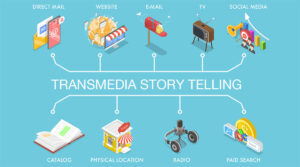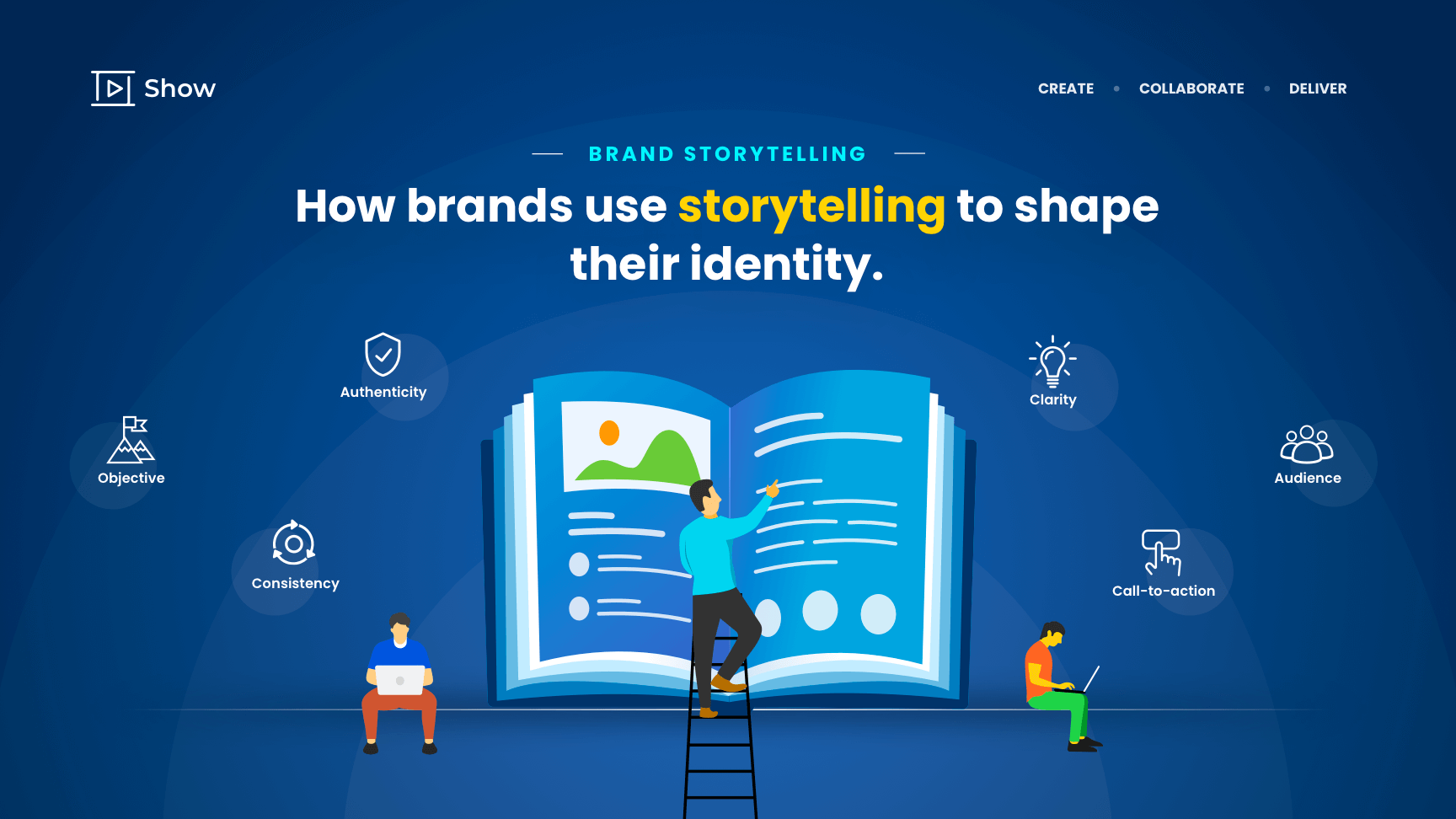Introduction: The power of storytelling in branding identity
In the heart of every successful brand lies a foundation of stories, waiting to be woven into the narrative that defines them. Storytelling is the art of breathing life into a brand, instilling it with a soul that resonates deeply with its audience. It’s a powerful tool that transcends mere advertising, allowing brands to connect with customers on a profound, emotional level. When done authentically, storytelling has the ability to evoke feelings, spark memories, and forge lasting bonds between a brand and its audience. In the African market, where community and cultural heritage are deeply ingrained, storytelling takes on an even greater significance. By tapping into the collective experiences and values of the African people, brands can craft narratives that not only resonate but also inspire, educate, and uplift. In this digital age, where consumers are increasingly skeptical of traditional advertising, storytelling offers a refreshing alternative – a chance for brands to build trust, establish empathy, and create a loyal following. Brands can unlock the secrets to building a loyal customer base, and ultimately, to driving long-term growth and success
Understanding your audience: What drives their emotions and decision-making
As you embark on the journey of crafting a compelling brand narrative, it’s essential to understand the heartbeat of your African audience. Who are they? What drives their emotions? What influences their decision-making? The African consumer is a unique blend of traditional values and modern aspirations. They are deeply rooted in their cultural heritage, yet they are also eager to embrace innovation and progress. To resonate with this audience, you need to tap into their values, beliefs, and motivations. For instance, community is a vital aspect of African culture, so highlighting how your brand contributes to the greater good can evoke strong emotions and loyalty. Similarly, the African consumer is driven by a desire for self-improvement and empowerment, so showcasing how your brand can help them achieve their goals can be a powerful motivator. Through understanding the nuances of the African consumer’s psyche, you can tailor your brand narrative to speak directly to their hearts and minds, fostering trust, loyalty, and ultimately, driving business success.
How to create a compelling story that resonates with African audiences

Crafting a compelling brand narrative that resonates with African audiences requires a deep understanding of the cultural nuances, values, and experiences that shape their worldview. It’s about weaving a rich tapestry of stories that speak to their aspirations, hopes, and dreams. To craft a narrative that truly resonates, you must first listen to the heartbeat of your audience, understanding their unique challenges, triumphs, and passions. This means immersing yourself in their world, conducting research, and gathering insights that inform your storytelling. Next, you must distill your brand’s essence into a clear, concise, and authentic message that speaks to the African spirit. This is where the art of storytelling comes alive, as you use vivid imagery, evocative language, and relatable characters to bring your brand to life.
Building trust through authenticity
In the heart of every African community lies a deep appreciation for authenticity and honesty. It’s a value that’s deeply ingrained in the continent’s rich cultural heritage, and it’s an essential element that brands must embody if they hope to build trust with their African audiences. When it comes to brand storytelling, authenticity is the key to unlocking the doors of trust and loyalty. It’s about being true to your brand’s purpose, values, and mission, and communicating them in a way that resonates with your audience. Authenticity is what sets apart a brand that’s genuinely committed to making a positive impact from one that’s simply trying to make a sale. It’s the difference between a brand that’s willing to listen and learn from its customers, and one that’s only interested in pushing its own agenda. When you’re authentic, you’re transparent, vulnerable, and honest – and that’s what builds trust. Your audience can sense when you’re being genuine, and they’ll respond by opening their hearts and minds to your brand. In a world where consumers are increasingly skeptical of brands and their motives, authenticity is the currency that sets you apart and builds a loyal following.
The role of emotions in storytelling
Emotions are the heartbeat of storytelling. They are the threads that weave together the fabric of a narrative, making it relatable, memorable, and impactful. When it comes to crafting compelling brand narratives that resonate with African audiences, understanding the role of emotions is crucial. African cultures are deeply rooted in community, family, and tradition, and emotions play a significant role in shaping individual and collective experiences. To tap into the emotions of your African audience, you need to speak to their values, aspirations, and pain points. This means creating stories that evoke feelings of nostalgia, hope, and joy, while also acknowledging the struggles and challenges that are unique to the African context. By doing so, you can build trust, foster empathy, and create a sense of connection with your audience. For example, a brand that tells a story of perseverance and resilience in the face of adversity is likely to resonate with Africans who have faced similar challenges. Similarly, a narrative that celebrates the richness of African culture and heritage can evoke feelings of pride and belonging. By tapping into the emotions of your African audience, you can create a brand narrative that is authentic, relatable, and memorable, ultimately driving loyalty and advocacy.
Storytelling channels and mediums: Choosing the right channels to tell your brand story

In today’s digitally-driven landscape, the channels and mediums through which we tell our brand stories have multiplied exponentially. Gone are the days of relying solely on traditional print and television ads to reach our target audience. Now, we have a plethora of options to choose from, each with its own unique strengths and weaknesses. Social media platforms like Facebook, Twitter, and Instagram offer a direct line of communication with our audience, allowing us to share bite-sized pieces of our brand narrative. Video-sharing sites like YouTube and Vimeo provide a more immersive experience, enabling us to craft rich, visually-driven stories that captivate and engage. Podcasts, blogs, and online forums offer a more intimate, conversational tone, allowing us to build trust and establish authority in our industry. And, of course, there are still the more traditional channels like television, radio, and print, which continue to hold value in certain contexts. But with so many options to choose from, it can be daunting to determine which channels are best suited to telling your brand story. That’s why it’s essential to understand your target audience, their preferences, and behaviors, and to tailor your storytelling approach to the channels that resonate most with them.
Conclusion. A key to building trust and loyalty with African audiences
In the realm of branding, storytelling is a potent tool that has the power to transcend cultural boundaries, evoke emotions, and forge lasting connections with audiences. In the African context, where oral traditions and communal values are deeply ingrained, the art of storytelling takes on a profound significance. By crafting compelling brand narratives that speak to the hearts and aspirations of African audiences, businesses can build trust, foster loyalty, and create a lasting impact. As we conclude this journey into the art of storytelling, we are reminded that the most effective brands are those that weave narratives that resonate, inspire, and uplift. By embracing the richness and diversity of African cultures, and by sharing stories that reflect the values and aspirations of the African people, businesses can unlock the full potential of their brand and forge a lasting bond with their audience.
